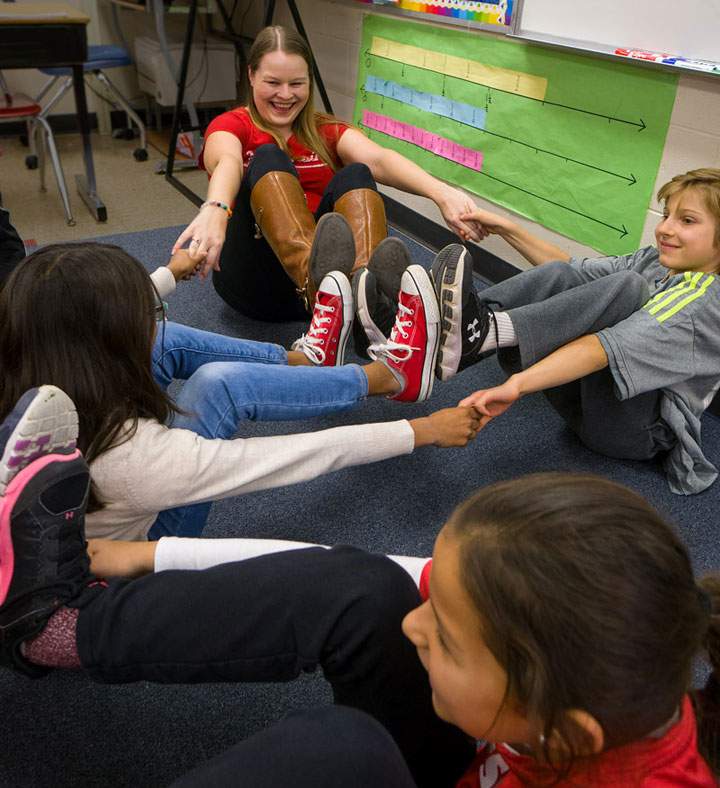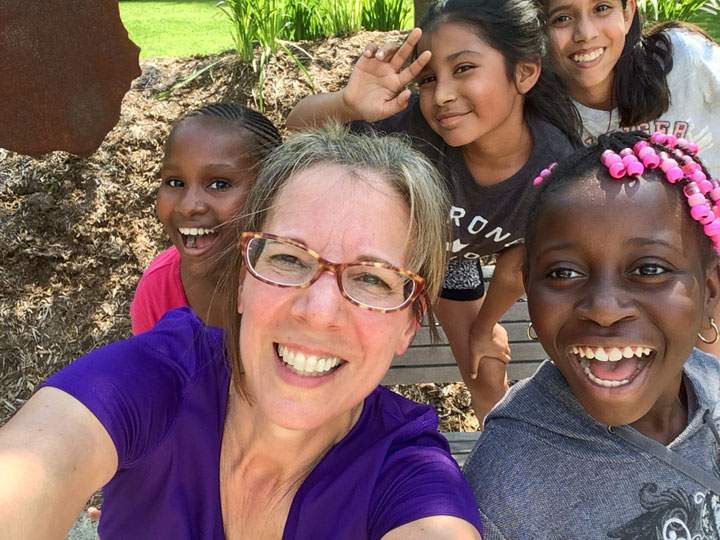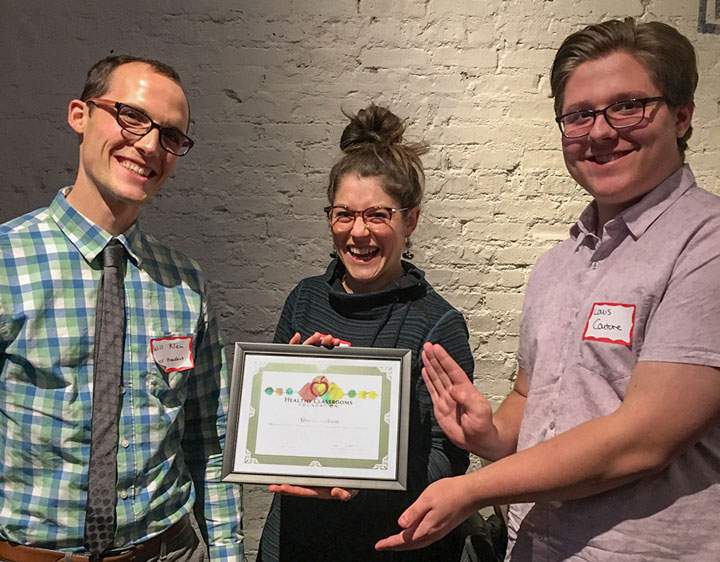Teachers and staff members are the volunteer coaches who take turns teaching 30-minute lessons — about topics such as bullying, body image, self-esteem, the value of community spirit, building friendships and making healthy choices — followed by 40-minute, small-group runs. The grant helps provide running shoes, as well as opportunities for the girls to volunteer at a 10K run and participate in a 5K run.
“Our goal with the Hawthorne Girls Running Club is to empower young women so they are equipped to make healthy life choices in middle school, high school, and post-graduate life,” explains Yates. “Many of our runners say they’ve learned more about themselves through our program, made new friends, learned how to prevent bullying and learned how to manage their emotions.”
Referring to a session when students viewed pictures of runners with attitudes ranging from happy to frustrated, fifth-grade student Safiyyah Cham says, “Before we started running, we did different lessons, and I liked the one when we chose who we would like to run next to or which runner you would want to be.”
Another fifth-grade student, Yadhira Bautista, says, “I learned that you have to work with others to have fun and encourage others. You also have to have strategies when you’re running, like to go the same pace and not too fast.”
Public Health Allies
While reflecting on the annual grant applications she opened over the past two summers, Mina Shahlapour, foundation co-vice president, saw great examples of ways applicants are aiming to bolster Wisconsin youth. Now a second-year medical student, she was inspired to volunteer for the past two years to put in motion some things she had learned while working on a UW–Madison global health certificate.
“We learned that while medical determinants can be influential parts of health and wellness, people in our city, state and nation deal with many barriers outside of the clinic walls,” she says, noting the importance of learning what prevents people from living the healthiest lives they can.
“The Healthy Classrooms Foundation allows people, in their own communities, to fuel the fires of change that need to be made,” she says. “Educators best understand their students and the gaps that exist in their communities. They are public health allies.”




